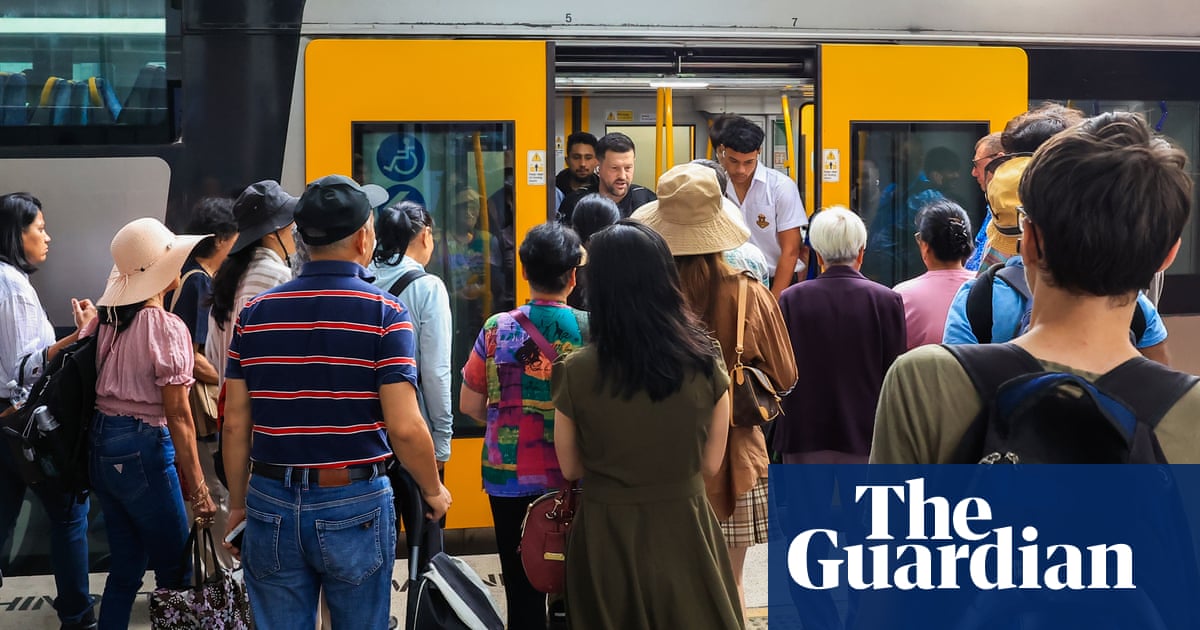Sydney commuters have been granted a more than four-month reprieve from industrial action on the city’s train network, after the Fair Work Commission ordered rail union work stoppages be suspended until 1 July.
On Wednesday evening, the Fair Work Commission announced that while it would not grant the six-month suspension that the New South Wales government had requested, it would temporarily halt all industrial action to help unions and the government strike a pay deal.
The Fair Work Commission president, Adam Hatcher, rejected the Minns government’s request for a suspension until September, at which point the dispute could be settled by arbitration.
He said the NSW government and the combined rail unions had engaged in “mutual public recrimination” over recent industrial action, and he hoped the four-month suspension period would reduce adverse media coverage and help the parties come to an agreement.
Hatcher said he did not believe the continuation of industrial action from the unions would help negotiations progress. Rather, he said it could push parties further apart, and so the four-month suspension was in the public interest.
Speaking to reporters on Wednesday night, the state transport minister, John Graham, thanked the Fair Work Commission, and said the decision “promises an end” to the disruption.
“This gives us the clear air to stop interrupting people’s lives and get on with the business of landing an agreement, [and] fair pay and conditions for rail workers,” he said.
The treasurer, Daniel Mookhey, said the government did not “want this to linger until July” and would use the cool-down to work through remaining issues.
“We want to get this done, in that sense, the government will return and bargain in good faith,” he said.
Rail Tram and Bus Union (RTBU) state secretary Toby Warnes said in a statement on Wednesday night that it was “incredibly disappointing that the NSW Government has allowed its dispute with the state’s rail workers to get to this point” and that it set “a dangerous precedent”.
“It has set an industrial agenda for aggressive employers, which should be a serious concern not just for rail workers, but for workers everywhere,” he said.
after newsletter promotion
Warnes said the union was worried the government had no intention of finalising the bargain and would continue to “sit on its hands”.
“While we are hopeful that the NSW Government will see this result as reason to come back to the negotiating table, we are not confident,” he said.
Work stoppages have been deployed by a handful of rail unions who have been locked in negotiations with the state government for nine months, since their last pay deal expired in May 2024.
A deal seemed imminent on 12 February before talks broke down after the unions raised a one-off $4,500 payment to all staff for coming to an agreement.
Rail unions said the payment was part of their last enterprise deal and claimed it should have carried over into the new one.
But the government said the unions had not raised the payment at any point during negotiations before mid-February, and that the payment should never have been assumed as it was only included in the previous deal to cover back pay.







